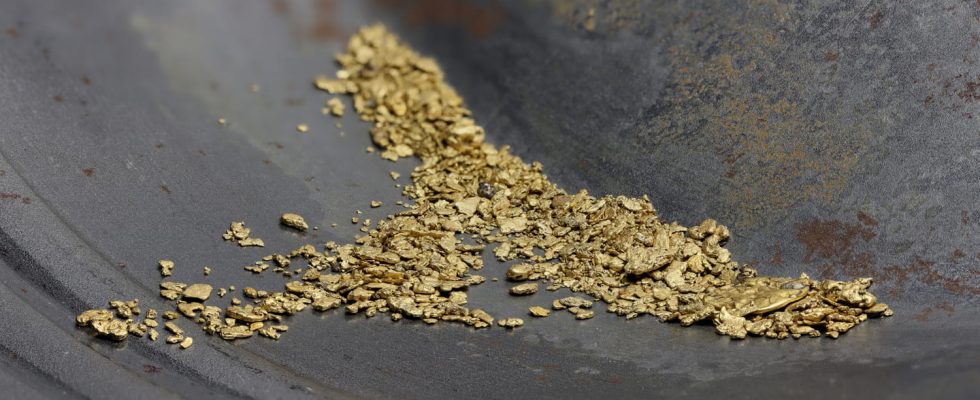A region could become a real gold mine again in a few years, as the stocks seem very large.
Are we heading towards a new gold rush in France in 2024?! The race to obtain the most precious metal is relaunched in France. A site with “significant deposit potential” will be exploited in the coming years to try to extract kilos of golden nuggets. The State has just given the green light. The objective: “to contribute greatly to the independence of supply of France and Europe in precious and strategic metals.”
While the Côtes d’Armor, Gard and the Pyrenees are the main gold mining areas still known in France, a new one should therefore see the light of day. This is located in the west of the country, in the heart of Limousin. In an area between Limoges, Brive, Périgueux and Angoulême, a search perimeter has been determined. It includes the municipalities of Chalard, Ladignac-le-Long (Haute-Vienne) and Jumilhac-le-Grand (Dordogne).
This site was not chosen at random. This is a former mining operation, called “Bourneix”, closed in 2002 and which has always been the scene of gold searches over the centuries. Today, “several dozen tons of gold” are still buried there. The village of Chalard is also located on the edge of “one of the largest French gold districts, with grades higher than the international average”, indicated Thomas Poitrenaud, geologist and president of Arédiennes mines, at Figaro in 2023. And this, while the kilo of gold sells for around €60,000.
On these 39km², gold will therefore be sought, but not only that. The discovery of silver, tin, copper, zinc, lead or even nickel is also hoped for. But don’t think you can come on your own with your hat and sieve. Extraction is supervised and reserved for the company Aurelius Resources, a subsidiary of an English company of the same name, specializing in mining. For now, the company will explore the soil for at least five years, a period which will determine whether an operation can then be set up to extract the metals. The company is very hopeful of setting up a mine.
Some voices are trying to be raised to oppose the project, particularly in the face of the risk of pollution that it could cause. In mail, the Stop Mines 87 association is concerned that “the exploited sites are irreparably polluted”, recalling that “pollution is not or only too little taken care of by the operators.” It also warns of the “considerable” quantities of water required on such an operation. The impact study of the site operator recognizes pollution but affirms that the effects will only be “temporary”.
